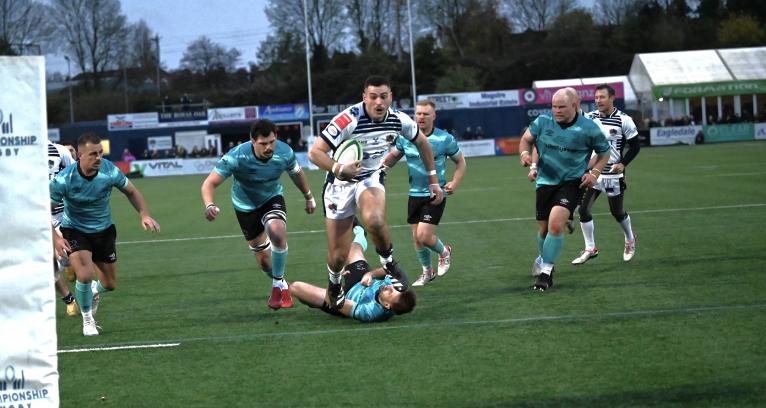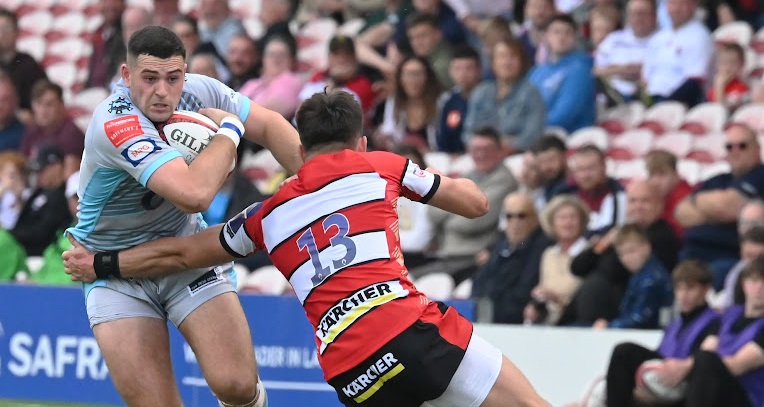In 1956 following a successful season as Oxford University’s fly half and an impressive performance in the Varsity Match Mike Smith won his first England cap in the Five Nations against Wales.
He went on to win 50 further caps between 1958 and 1972 – as a middle-order batter, fine close catcher and popular captain of England’s cricket team – without again catching the eye of those in charge at Twickenham.
Fast forward 68 years and it’s fair to say that being spotted in long shorts at Iffley Road is no longer such a well-trodden route into the England team. However, the alternative pathways available to those journeying from teenage hopeful to red rose regular generate plenty of opinion.
In current times, the vast majority of players who go on to represent England in the Six Nations or at a World Cup begin their professional rugby journey in the Gallagher Premiership’s academy system.
Each season a reasonable-sized group of mid-teens join each club’s junior academy and over three years this squad is pared down to a handful of 18-year-olds who win a three-year contract to train with the pros as paid apprentices or to give them their modern title academy professionals.
All well and good…but what about those who don’t make the cut at 18, or those late developers who never entered the academy sausage machine in the first place?
English rugby is sprinkled with products of junior clubs and those who took up the sport in their late teens who often are from non-rugby playing schools. Among this list are some well-known names have successfully defied the odds and gone on to make the grade.
Recent Exeter signing Will Rigg is living proof that being seated on the rocket fully equipped with helmet, air-sickness pills and a large dose of ambition at the age of 15 is not the only way to reach the stars.
The 24-year-old powerhouse centre is yet to reach the attention of the wider English rugby public. However, there are plenty of experienced rugby watchers in South Wales and the West Midlands that have the Solihull School product earmarked for a big future.
At the age of 15 Rigg was a talented sportsman at a school where – under the watchful eye of former England all-rounder Darren Maddy – they know a thing or two about turning out useful cricketers.

Although he also played in the school rugby team and for his local club Silhillians, Rigg was a regular in Warwickshire’s county cricket age group sides and well-known at Edgbaston. When he completed his A levels it was therefore no surprise that he headed off to Coburg CC in Melbourne for a winter developing his talents in the testing environment of Australian grade cricket.
However, the tide soon began to turn for Rigg, who in his own words “fell out of love with cricket a bit” during his spell Down Under. As a result when he returned to the UK he embarked upon a degree in business management at Cardiff Met University and fancying a game of rugby turned up at the freshers’ trials with no thought of what might follow.
“I went to the trials thinking I’d enjoyed rugby at school and hoping I might get in one of the Cardiff Met teams,” he said.
“I obviously did something right because within a few weeks I’d made my first team debut.
“But Covid then came along and we didn’t play much in my second year or for some of my third year. To be honest, when we started again I wasn’t thinking about anything more than cementing a place in the BUCS first team.
“I managed to put some good performances together and after a few conversations with an agent decided to see if I might be good enough to make a go of rugby.
“Alex Rae at Coventry then approached me in March or April and it seemed like that would be a good move as it was close to my home, but more importantly because he convinced me there would be an opportunity for me to play plenty of rugby.
“I knew Alex had only been in post a couple of months and was building a squad with plenty of emphasis on younger players which meant it would be a fresh play for everyone. He told me there would be chances for me and that the environment he wanted to create would be fair to everyone and reward those who performed well.
“Alex put together a group in which there were very few Premiership drop-downs but instead most of us arrived from universities or the National Leagues. He obviously believed in his own recruitment and managed to build a team that finished third in the league last year by adding this group to some players who were already there then bringing in a couple with more experience on top.”
If student rugby at Cardiff Met launched Rigg on his way, he has no doubt that joining Coventry where he received some outstanding coaching and learned rapidly in the ultra-competitive English Championship turned him into much more than a promising rugby player.
“Never having been involved in a pathway or professional team before, when I first arrived at Cov I relied on my own instincts and physical presence,” he said.
“Getting used to systems and some of the more technical bits took time but once that came my confidence really grew. Putting together what I learned individually from the coaches with game management skills plus improved strength and conditioning turned me from the raw player that left uni into someone who knows a lot more about the game and is a much better rugby player.
“Cov provide a great environment for someone in my situation – you are given all the tools and it is then up to you to do the work to put things into place. I worked loads with (backs coach) Gordon Ross on passing and kicking but maybe my biggest improvement came in defence where I used to sit down and look at match videos with (defence coach) James Scaysbrook.”
What would Rigg say to a talented teenager who has either failed to catch the eye of the Premiership academies or fallen by the selection wayside at one of the top ten clubs?
“The only way to improve is by playing rugby,” he says. “From September 2022 to January 2024 I played around 40 competitive games in the Championship or the Premiership Cup.
“The quality of the Championship and just how many really good players there are playing in it sometimes gets missed a bit. For any young player having the chance to play plenty of rugby at that level is vital to their development.”
The next stage on Rigg’s journey challenges him to start again in Devon and try to play as regularly in the Premiership as he has in the Championship. In this respect he made a good start by scoring a couple of tries on debut for Exeter in a friendly against the Scarlets.
The demands of modern professional sport mean no-one will again follow in MJK Smith’s 1950’s footsteps and represent their country at both cricket and rugby union, but alternative routes to the top tier of English rugby clearly do still exist.
Smith went on to form the backbone of a 1960s and early 70s Warwickshire batting line-up in which he was often joined by another Edgbaston legend Dennis Amiss. Might the combination of Rigg’s power with Henry Slade’s footballing skills become a similarly potent partnership?
And could Rigg and Slade join Smith and Amiss in starring for both club and country? Time will tell.












































